Eric Waschke
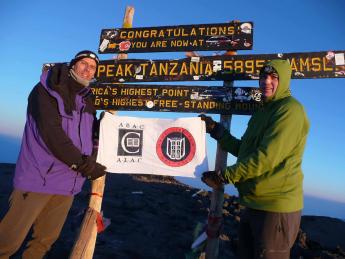
Eric Waschke
An interview by Barbara van Benthem
From Canada to the Kilimanjaro, from Moscow to Buenos Aires and back to Vancouver. “I guess my claim to fame is that I've visited over 4000 used and antiquarian booksellers, including over 1000 ILAB members, in my travels to 92 countries.” Eric Waschke is a real global player and well-known for his reports about the antiquarian book markets in South America, Russia or Eastern Europe. Wayfarer’s Bookshop (Vancouver) published its first catalogue in 1997. Since then Waschke has been specializing in important, rare and unusual books on exploration and voyages in Africa, America, Asia, the Pacific and the Polar Regions. Eric Waschke is President of the Antiquarian Booksellers’ Association of Canada (ABAC). His recent project: After 15 years the Toronto International Antiquarian Book Fair will return in October 2010, organized by the ABAC. An interview with Eric Waschke about his career, the upcoming fair and rare bookselling in the 21st century.
1. When did you start working in the antiquarian book business?
I started collecting antiquarian (19th and 20th century) travel guides and atlases when I lived in Surrey, England, with my parents when I was nine and I started working as a freelance bookscout in Berlin when I was seventeen.
2. How did you become involved in the business?
Four people had a big part in this: My mother read history books rather than nursery rimes to me as a baby and young boy, my grandmother was a great storyteller who further fostered my interest in history by telling me captivating stories about her Silesian homeland, my father was a collector of Victorian oil paintings, maritime antiques, and native American artefacts. So when we lived in England he frequently took me to Christie’s and Sotheby's to view auctions which schooled my eye for antiques of all kinds. Finally the first antiquarian bookseller I ever dealt with as a boy of nine was in Virginia Waters, England, who would sell me Baedekers and atlases at a small fraction of his retail price so that I could stretch my 2 Pounds 50 pocket money as far as possible.
3. Do you concentrate mainly on catalogues, or on the internet?
I guess my claim to fame is that I've visited over 4000 used and antiquarian booksellers, including over 1000 ILAB members, in my travels to 92 countries. Besides, I have a show room, open by appointment only. I am currently re-designing my website (www.wayfarersbookshop.com), so please look out for the relaunch this summer. And I am planning to issue a proper printed catalogue again this fall after several years hiatus.
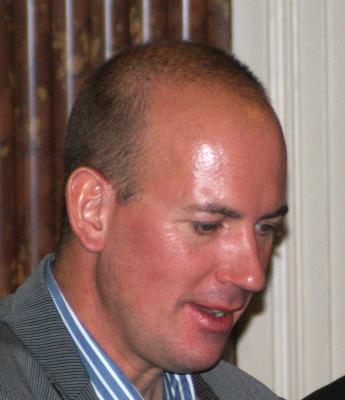
4. Are you specialised?
Yes, I deal in rare and unusual books, ephemera, manuscripts, photographs, maps and prints exclusively relating to the exploration of and travels and voyages in Africa, the Americas, the Antarctic, the Arctic, Asia and the Pacific.
5. Do you remember the most extraordinary book you ever sold or bought?
Two stand out. First, Vasco Fernandes de Lucena: Valasci Ferdina[n]di Utriusq[ue] Iuris Co[n]sulti Illustrisimi Portugalliae O ratoris ad Innocentiu[m] VIII, Pontifice[m] Maximu[m] de obedentia oratio. [Oratio on the discoveries of Martin Behaim & Diogo Cão]. Rome: Stephan Plannck, 1485. This is the extremely rare, celebrated and legendary first printed account to mention the New World with only four copies found in Worldcat of this first issue. Second, Johann Reinhold Forster: Nachrichten von dem Leben und den Seereisen des Beruhmten Captain Cook. [With] Briefe aus England Historisch, Statistisch und Artistischen Inhalts, Reval & Leipzig: Albrecht and Compagnie, 1780. A very rare work published in Reval, probably the first account of Captain Cook's death to be printed in book form, with references to the Hawaiian Islands.
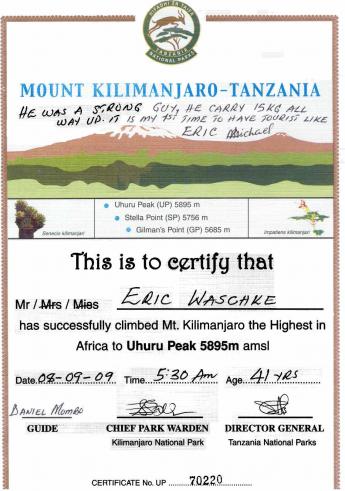
6. What was your first / your most interesting catalogue?
The Wayfarer's Bookshop, Catalogue One was published in 1997 and my most interesting catalogue was the 2008 California Book Fair List which included six geographical publications not found in Worldcat as well as this fantastic book: Arngrime Jonssine's Gronlandia Edur Graenlandz Saga Ur Islendskum Sagna Bookum og Analum samantekin og a Latinski maal Skripud av theim heidurliga & halaerda Manni, Syra Arngrime Jonssine Fordum Officiali Hola Stiftis og Soknar preste ad Melstad (Greenlandia, or Greenlandic History, collected from Icelandic story-books and annals and the Latin language. Written by the very holy and very learned man, Sir Arngrime Jonssine, formerly Official of all the Stifts and Parish Priest at Melstad). It was printed in Skalhollte, Iceland by Hendrick Kruse in 1688, and it is excessively rare. It is a book of great historical importance, containing the 15th century relation of the discovery of Greenland by Eirik Raude; the destruction of Skalholt by an eruption of Mount Hecla. And: This is the first printed edition of the account of Eric the Red's discovery of America during the 10th century.
7. Book fairs: Many dealers don’t exhibit, they concentrate on catalogues and/or the internet, whereas other dealers are seen everywhere in the world. Why are book fairs still important although we can meet almost everyone at any time in the internet?
Collectors need to see and feel the books to get an appreciation and desire for them. Also, personal one on one discussions between booksellers and collectors are still a far better way of building business relationships than emails.
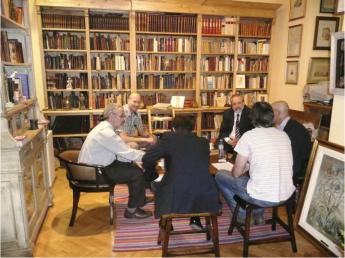
8. How many booksellers are there in Canada?
There are probably a few thousand used and antiquarian booksellers working at various levels in Canada, but the ABAC currently has 63 members.
9. What are the major activities of the ABAC?
Right now the major activity of the ABAC is the relaunch of the Toronto International Antiquarian Book Fair. The ABAC board and Gadsden Promotions are working tirelessly to make this the best antiquarian book fair ever in Canada.
10. The Toronto International Antiquarian Book Fair is returning after a 15 year hiatus. Why did it take so long?
Well, to properly plan and organize an international antiquarian book fair is a lot of work. Also, the original Toronto Antiquarian Book Fair was killed by the implementation of the GST (a value tax) which made bringing books into Canada very difficult for international exhibitors. Finally we've arranged for Caladex to be the official book fair shipper and they have overcome these customs difficulties and so will easily be able to handle the import and export of books for the international exhibitors.
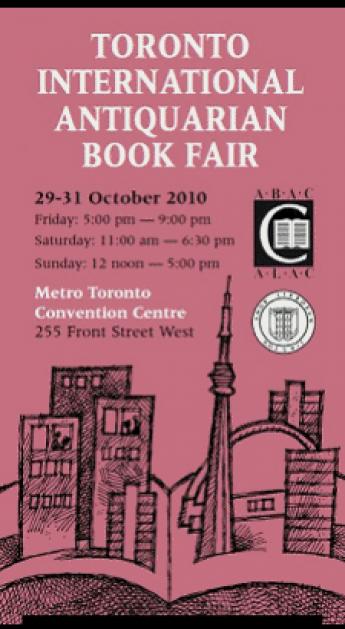
11. How many exhibitors do you expect?
Fifty: half Canadian and half international.
12. Are you planning any special events during the fair? Will there be a book fair catalogue?
We are working on getting a famous author to open the fair, and also on a reception for the exhibitors. There will be an online book fair catalogue and a printed book fair directory which will have space available for advertisements.
13. You are travelling a lot and know the rare book market very well. Do you see any differences between the markets in America, Asia, and Europe?
Well, one could probably write a book on the details of these differences but in short: In America successful bookselling is about attracting big collectors and helping them build libraries, alas the current economic crisis has made many of these small collectors. In Europe, one needs to attract a larger number of collectors with healthy salaries, this is more work but also more stable in a down-turn. In Asia one has to put more time and effort into building trust and relationships but the resulting customer loyalty is very high.
14. Some people say that the rare book business has radically changed during the past ten years. Most of them blame the internet. What do you think?
The biggest problem with the internet is that it has made many interesting important standard works seem common and consequently less collectible and desirable. The problem with this is that these were the books which once inspired beginning collectors to start a collection in a particular field. Today's market is all about rarity and while that is fine for the advanced collector, these rarities are not what the beginner will buy to start a collection.
15. In two sentences, what is most important for a good rare book dealer?
The desire to learn something new every day and an undying passion for antiquarian books.
16. What can the ILAB do for the future of the rare book business?
ILAB should continue to create a safe and reputable environment where booksellers and collectors can do business and globally promote the antiquarian book business to attract a new generation of book collectors.
17. What do you think about the future of our business in general?
I think the days of the book being important as source of knowledge are numbered so antiquarian book sellers need to focus on marketing antiquarian books as objects and artefacts.
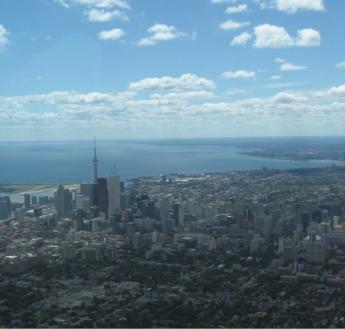
>>> Toronto International Antiquarian Book Fair - on ILAB.org
>>> Toronto International Antiquarian Book Fair - official website and exhibitors list
>>> ILAB on the Road - Antiquarian Booksellers of Santiago de Chile, Montevideo and Buenos Aires, by Eric Waschke
